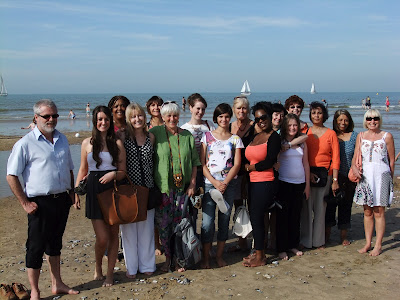It was great to get this picture from friends in the States, in the wake of super-storm Sandy.
As always in such cases, if there is a positive message to come out from a disaster, it’s that of human courage and selflessness. And in this case, the humans are manual workers many of whom are unionised.
The unions are the organisations that, somehow, it has become fashionable to belittle. Bureaucratic. Obstacles to progress. Sinister even.
So they’re easy game. To a governor of Wisconsin, for instance, intent on dismantling all collective bargaining arrangements. And the onus of proof seems to be on those who oppose him, who say that rights should be defended, while the common view seems to back his onslaught on them.
It’s as true in Britain. The latest government wheeze is to buy out rights: smaller companies could offer share options in return for workers giving up for example, on suing over unfair dismissal. Odd that government seems to view unfairness as something of a good thing.
Which ought to be a warning to anyone in the States who depends on employed work and who’s tempted to vote Romney. Take a look at what his brother-in-outlook Cameron is doing in Britain, and think again. Just how well will you do out of unfairness?
There’s certainly plenty of unfairness around. When Bob Diamond stepped down as Chief Executive of Barclays Bank, he had the decency to waive £20 million of bonus. Perhaps that’s not unreasonable: after all, the justification for high pay is the responsibility its recipients take, and on his watch Barclays had lost half its share value and engaged in practices that are still the subject of investigation that may lead to criminal proceedings.
That left him with only the relative pittance of £2 million to soften his departure in disgrace.
Which is only 80 times the yearly salary of a fully qualified nurse and only 25 times the salary of a top nursing manager in the NHS. And the NHS is in the second year of a pay freeze.
So that picture really is quite a useful reminder. After all, when a storm hits, I think I’d much rather have those workers up the pylons repairing the lines, rather than rely on a banker. And if I’m ill I’d much rather see a nurse. It may be heretical to say it, but when things get tough, I’d value those low-paid workers rather more than the prosperous financier.
Which suggests that it would be no bad thing to redress the balance a bit, to stop making quite such a virtue of unfairness. And if the unions can help make things fairer, the playing field more level, well, perhaps it’s time to review our image of them too.


































